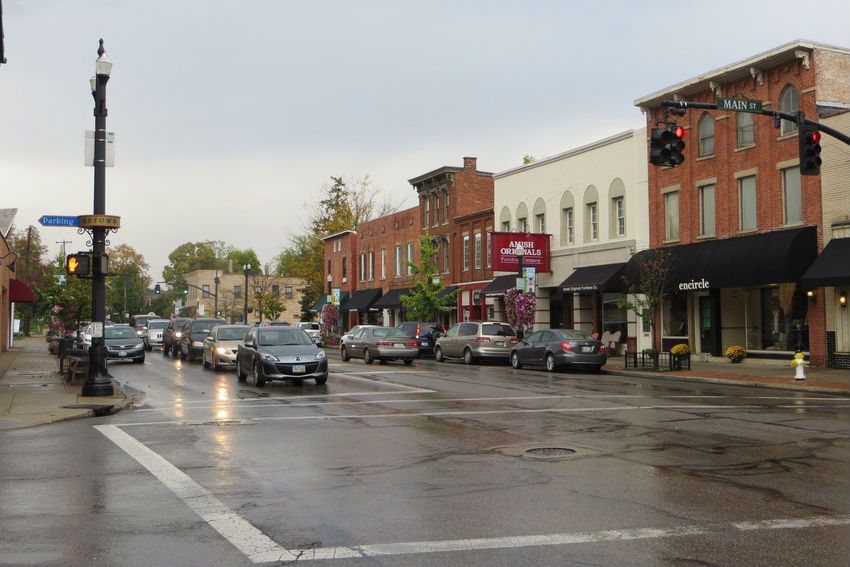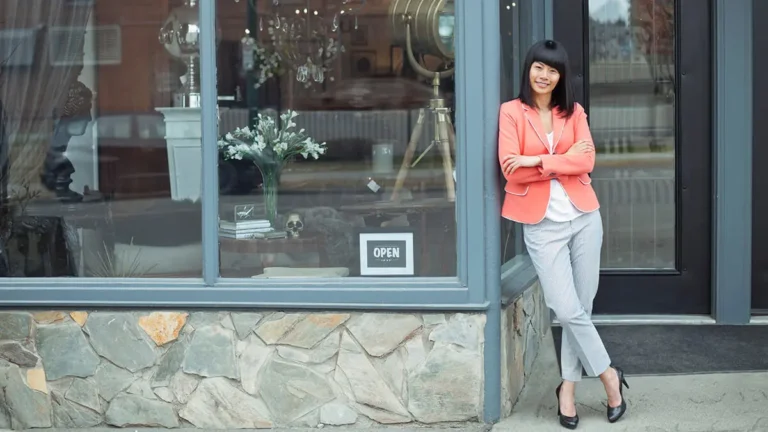Your business location is a big deal. Whether you’re it’s your first time around or you’re opening a second location, choosing a business location is not a decision you should make on a whim. Your choice can impact your business’s chance of survival.
Why is location important when starting a business?
Choosing a location for business is all about setting your business up for success. You shouldn’t just choose the trendiest building or the cheapest listing. You need to put careful thought into where you want to establish your business. After all, your business location isn’t something you can easily change.
Your business location sets the tone for your business. It adds to what customers think of your business. The business location determines how well you will do. Choosing a location is not a task you should take lightly.
Factors to consider in your business location analysis
There are many factors to consider when finding a business location. You can make a better buying decision by asking yourself questions about your needs and finances.
Below are several business location factors and questions you should ponder as you’re choosing a location for your business.

How much can you afford?
Before you start looking for a business location, you need to create a business budget for your impending expenditure. Your budget is one of the most important business location factors because you’re probably not flush with cash as a new business. How much can you afford to spend on your business location?
Remember, the monthly rent or lease payment is not the total cost of the location. There are other costs to the property.
Find out if you need to pay taxes when you buy a commercial building in your area. Also, think about the cost of property taxes. How much you spend on taxes will depend on your location and whether you buy outright or rent.
Your business location strategy should also consider the average cost of utilities. Older buildings might cost more to heat and cool. You might be able to ask the previous owner how much utilities cost each month.
There might be hidden costs to the building. You might need to do a renovation or install upgrades. For example, you might need to add insulation or run communications cables. You’ll also have to decorate the interior to fit your style and brand. The extent of the necessary building improvements will depend on the building’s age and previous use.
What type of space do you need?
Determine what you plan to use the business location for. Will you only use it as retail space? Do you need a workshop or office? Do you need a storage area or warehouse? Do you need a kitchen or room for specialty equipment?
Knowing what type of building you need will help you decide if prospective buildings are a good fit.
What is your style?
Your business’s brand and visual style can help you rule out certain small business locations. Your brand and your building should be cohesive.
For example, if your business sells vintage superhero memorabilia, a colonial style building with chandeliers might be a mismatch for your brand.
You might be able to decorate the building to suit your brand, but your lease could prevent you from making some changes.
What other businesses are nearby?
Before you buy or rent a building, check out the surrounding neighborhood.
Part of your business location strategy should be based on the amount of competition in the area. If there is a lot of competition, there might not be enough customers for you. Or, you might be able to secure the customers the competition cannot accommodate. If there is no competition, you won’t have customers stolen from you. A lack of competition might also indicate there aren’t customers in the area. It is important for you to do a market analysis to learn about your customers and competing businesses in the area.
Also, find out what businesses are near your prospective location. Will the other business draw in customers that will visit your business, too? Your business might be mismatched with the already existing businesses.
For example, if you are starting a vegan restaurant, buying a building next to a butcher shop would be an odd choice. You probably can’t attract many customers who are visiting the butcher shop next door.
Can you grow with the location?
Consider the potential growth of your company when choosing a location for a business. A small space might be cheaper, but the size might limit your business in the future. As your business prospers, you might need more space. For example, you might need more production space to make more products. Or, you might need a bigger retail area to accommodate more customers.
Think about how the space can grow or adjust with you. Are you able to rearrange the layout? Can you expand the building? If the space can’t grow as you do, you might find your business cramped in a small space in the future.
How easy is the location to access?
Factor in how easy it is for people to get to your business.
First, think about your customers. Do your target customers live nearby? If not, you might not get much traffic into your store. Find out how often your desired customers are in the area.
Consider how easy it is for customers to reach the business location. Does public transportation run near it? Is there a parking lot? Are there parking meters? How far do customers have to walk?
Once customers are in the area, how easy is it for them to find your business? If your business is away from the main shopping area or tucked behind other businesses, your customers might not be able to find you.
Also, figure out how easy it is for customers to get into the business. How handicap accessible is the location? The best business locations will be highly accessible and convenient for your target customer.
Second, think about how you will get supplies and deliveries. Can delivery people easily move items into your business? If you get large shipments on pallets, is there an entrance that can accommodate trucks? The right location for a business has to work for vendors and suppliers.
What is the neighborhood like?
Find out what the surrounding neighborhood is like. Investigate the crime rate and common crimes in the area. You want to be sure you and your customers will be safe. Also, you want to make sure your merchandise and building won’t be harmed.
What are the zoning rules?
Before you purchase a location for business, find out how it is zoned. Local zoning regulations might limit how you can use small business locations. Zoning rules might restrict what buildings can be used for commercial purposes, hours of operation, noise levels, signage types, and chemical usage.
Make sure the building’s zoning designation matches your business’s needs. If it doesn’t, you should probably keep looking for a business location.
How to choose a business location
Finding a business location can be tricky, especially if you don’t know where to start looking. Here are some places that might be able to help you:
- Your local chamber of commerce
- A commercial real estate agency
- Online real estate listings
- Local small business groups
- Rental and sale signs in your area
You might need to use a combination to find a place to plant your business. Remember to consider the previous business location factors to narrow down your search.
These views are made solely by the author.



